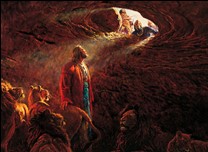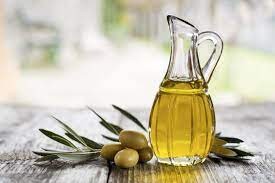Barley Grains

Barley is a grain crop commonly cultivated in Egypt and Palestine Barley had great value. Barley was used as payment and for reward. Barley was used for offerings to the LORD. Barley was used to for feed for the horses and dromedaries. Barley was used to feed people.
Barley is a grain crop:
Barley is a grain crop commonly cultivated in Egypt where the Bible speaks the barley being in the ear. (Exodus 9:31). Barley had great value. A homer of barley seed was valued at fifty shekels of silver and the children of Israel in Palestine shall sanctify unto the LORD some part of a field of his possession, then their estimation shall be according to the seed thereof (Leviticus 27:16). Barley was given to the Children of Israel a land containing wheat, and barley, and vines, and fig trees, and pomegranates; a land of oil olive, and honey. A land where they shall eat bread without poverty, they shall not lack anything in it. (Deuteronomy 8:8-9).
Barley used for food:
Barley was used to for feed for the horses and dromedaries. (1 Kings 4:28).Barley was used to feed people there came a man from Baalshalisha, and brought the man of God bread of the first fruits, twenty loaves of barley, and full ears of corn in the husk thereof. And he said, Give unto the people that they may eat. (2 Kings 4:42). Barley was to be put in a vessel along with wheat, and barley, and beans, and lentils, and millet, and fitches, and make bread. (Ezekiel 4:9–12). Jesus fed 5,000 with “five barley loaves” and two small fishes (John 6:9).
Barley was typically ready to be harvested by March or April, just in time for Passover in Bethlehem. (Ruth 1:22; 2 Samuel 21:9). Towards the end of the barley harvest the widows and poor could glean barley in the field until even. (Ruth 2:17, 23).
Barley was used as payment.
King Solomon build an house to the name of the my God, to dedicate it to him, and to burn before him sweet incense, and for the continual shewbread, and for the burnt offerings morning and evening, on the Sabbaths, and on the new moons, and on the solemn feasts of the LORD our God. This is an ordinance for ever to Israel. (2 Chronicles 2:4). The payment for the hewers that cut timber, twenty thousand measures of beaten wheat, and twenty thousand baths of wine, and twenty thousand baths of oil. (2 Chronicles 2:10). Jotham was king of Judah he did that which was right in the sight of the LORD, according to all that his father Uzziah did: howbeit he entered not into the temple of the LORD. And the people did that which was pervert and morally corrupt. (2 Chronicles 27:2). He fought also with the king of the Ammonites, and prevailed against them. And the children of Ammon gave him the same year an hundred talents of silver, and ten thousand measures of wheat, and ten thousand of barley. So much did the children of Ammon pay unto him, both the second year, and the third. (2 Chronicles 27:5). Hosea 3:2 So I bought her to me for fifteen pieces of silver, and for an homer of barley, and an half homer of barley.
Barley was used for offerings to the LORD
Barley was used for offerings to the LORD. The tenth part of an ephah of barley meal barley jealousy offering. (Numbers 5:15). Barley was used as a first fruit offering. Barley that is cut for the sheaf must be the first that is reaped, when you reap the harvest thereof, then you shall bring the sheaf. The first of your reaping unto the priest. (Leviticus 23:10). This is the oblation that you shall offer; the sixth part of an ephah of an homer of wheat, and you shall give the sixth part of an ephah of an homer of barley: (Ezekiel 45:13). All the people of the land shall give this oblation for the prince in Israel. (Ezekiel 45:16).
Absalom, the third son of King David, set Joab, the general of King David’s army, field of barley on fire. This was because Absalom sent for Joab twice and he would not come. (2 Samuel 14:28-30).
Barley was used as a reward:
Elisha Prophesies from the LORD God there would be incredible plenty in Samaria, and of the death of an unbelieving lord, (2 Kings 7:1). This relates to the case of four lepers, who that night went into the Syrian camp, which was deserted, caused by the noise of chariots, horses, and a host, which they thought they heard, the report which the lepers made to the king’s household of this affair, and the way the king’s servants took to know the truth of it, which, when confirmed, the people went out and spoiled the tents of the Syrians, whereby the prophecy of plenty was fulfilled. So a measure of fine flour was sold for a shekel, and two measures of barley for a shekel, according to the word of the LORD. (2 Kings 7:16). The unbelieving lord had posted at the gate of the city assigned him, was trod to death, and so the prediction concerning him had also was accomplished. But ten men were found among them that said unto Ishmael, the son of Nethaniah, Slay us not: for we have treasures in the field, of wheat, and of barley, and of oil, and of honey. So he left, and did not kill them not among their brethren. (Jeramiah 41:8).
Cite Article Source
MLA Style Citation:
Holstein, Joanne “Barley Grains:.” Becker Bible Studies Library Feb 2015.< https://guidedbiblestudies.com/?p=2342,>.
APA Style Citation:
Holstein, Joanne (2015, February) “Barley Grains:.” Becker Bible Studies Library. Retrieved from https://guidedbiblestudies.com/?p=2342,.
Chicago Style Citation:
Holstein, Joanne (2015) “Barley Grains:.” Becker Bible Studies Library (February), https://guidedbiblestudies.com/?p=2342, (accessed).


